This website uses cookies
We use cookies to ensure that we give you the best experience on our website. If you continue to use this site we will assume that you are happy with it.
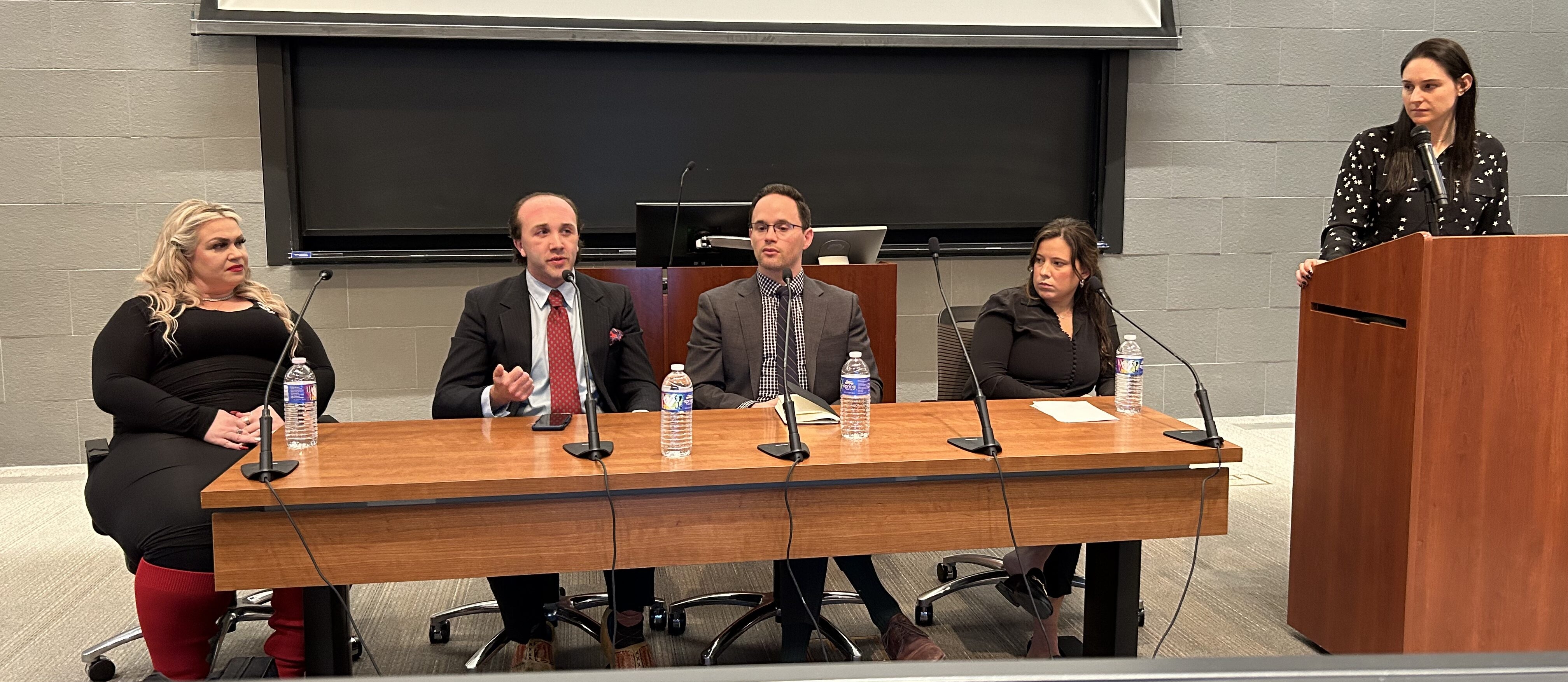
On March 19, a panel of experts and advocates came together at Cornell Law School’s Landis Auditorium to illuminate the challenges and avenues for advocacy in supporting survivors of military sexual trauma. The panelists had gathered for the Berger International Speakers Series event “Bringing Human Rights Home: Representing Survivors of Military Sexual Trauma,” which was co-sponsored by Cornell Law’s Gender Justice Clinic and Veterans Law Practicum.
The program featured voices from the legal field and those directly affected who highlighted a collective drive towards systemic change and the safeguarding of human rights within the military context. The panelists included Stephanie Schroeder, a retired United States Marine Corps veteran and founder of the Eyes Right Veterans Foundation; Benjamin Pomerance, deputy counsel for the New York State Department of Veterans’ Services; Pilar Gonzalez Navarrine ’24, a student in the Gender Justice Clinic; and Patrick George ’24, a U.S. Air Force veteran and founding member of the Veterans Law Practicum. The panel was moderated by Cailley Silbert ’24, also a student in the Gender Justice Clinic.
Schroeder spoke about the different issues that have arisen from how the United States deals with military sexual assault. “Just because [a report of sexual assault is classified as] restricted, doesn’t actually mean it’s going to stay confidential, which then opens up an array of issues like retaliation, and getting left off assignments. . . That’s one of the big issues that even still now we face,” said Schroeder.
Schroeder, who was discharged from service after she reported a felony to the Marine Corps authorities, learned of other veterans who reported instances of sexual assault to leadership and in return, also faced different forms of retaliation. This began her long and hard-fought journey to protect other service members from becoming victims of reprisals.
Benjamin Pomerance was asked about some of the legal and human rights challenges he’s faced throughout his professional career when it comes to supporting military sexual assault survivors. He noted that he has encountered many clients whose assaults went unreported and who felt that they could not receive healthcare or disability compensation because they were not educated about the law and the benefits to which they were entitled. “We need to help survivors understand the law and the benefits and services that are rightfully theirs,” he said.
George agreed that many service members and veterans are unaware that they are eligible to claim benefits for sexual trauma or are reluctant to do so for cultural reasons. But culture doesn’t change itself, he noted, emphasizing that the [Veterans Law] practicum aims to “get the message out” and be part of “changing the culture” over time. This includes “educating the officer corps [and] making sure that people have [the] resources they need to overcome incidents and bring offenders to justice.”
The Gender Justice Clinic is also providing support to military sexual trauma survivors by providing international and regional human rights litigation and advocacy. Gonzalez Navarrine discussed the clinic’s work in representing survivors in two cases before the Inter-American Commission on Human Rights after they were denied redress in U.S. federal courts. This work has also included advocacy before United Nations’ human rights bodies.
Gonzalez Narvarrine recalled that when she traveled to Geneva, Switzerland, with the clinic to speak before the U.N. Human Rights Committee, “we participated in briefings with about 150 other civil society members, and we got to hear them all, and they got to hear us all.” In this way, she explained, “participating in these processes can pull in more supporters and advocates from across the country and really highlights how intersectional this issue is.”
International engagement also has been valuable for Schroeder, who is a petitioner in the Inter-American Commission case and has engaged in advocacy at the United Nations. She recalled that when she spoke about her experiences before the U.N. Committee Against Torture, “there was a top U.S. military leader who apologized from the bench after I spoke. And then afterwards he came up, and that opened the door for us to be able to meet and negotiate about adding retaliation into the [military code]. Up until that point, none of the officials really believed me, and when he acknowledged [my experience], it was life changing; that’s the moment I understood that things could absolutely change.”
The overall message that panel attendees were left with, was that despite the deep systemic problems that military sexual trauma survivors face, there is reason for hope in moving forward. Professor James Hardwick, from the Veterans Law Practicum, urged students to get involved in this kind of work, whether in law school or in their future careers.
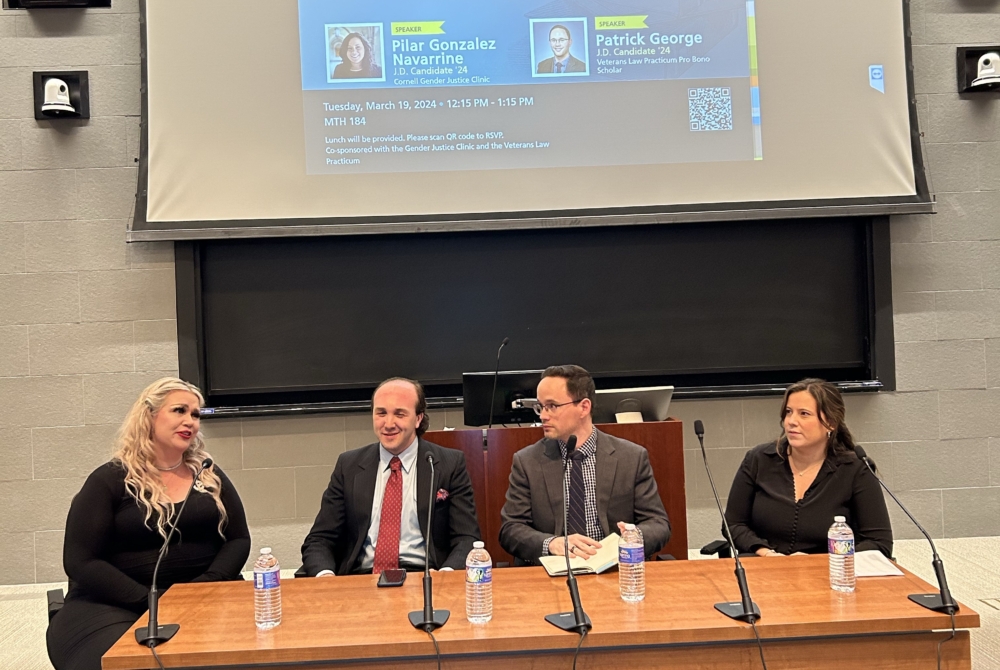
Panelists from left to right- Stephanie Schroeder, Benjamin Pomerance, Patrick George ’24, and Pilar Gonzalez Navarrine ’24.
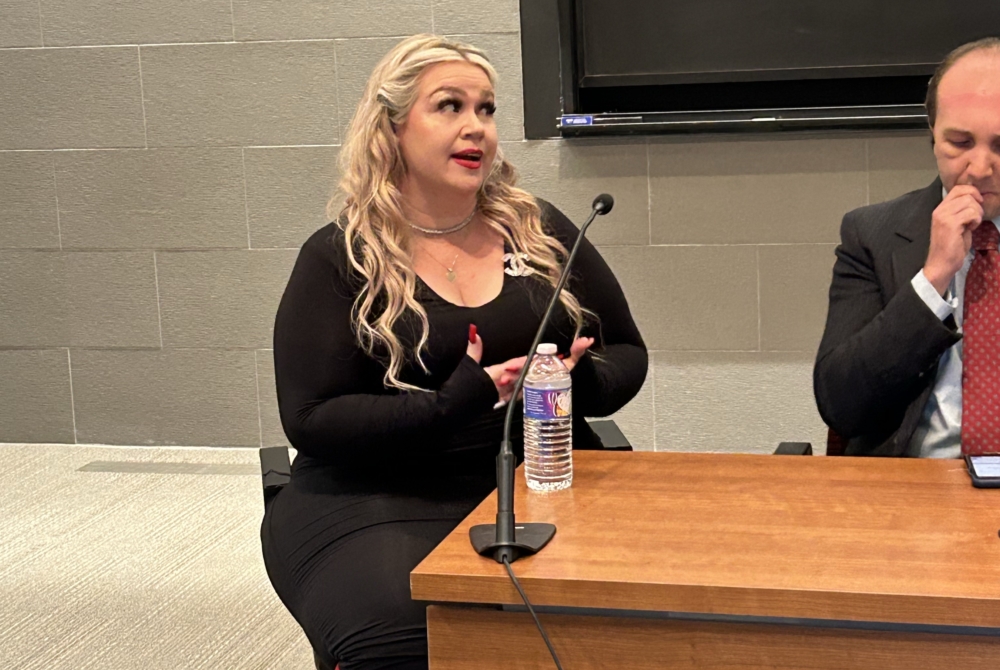
Panelist Stephanie Schroeder.
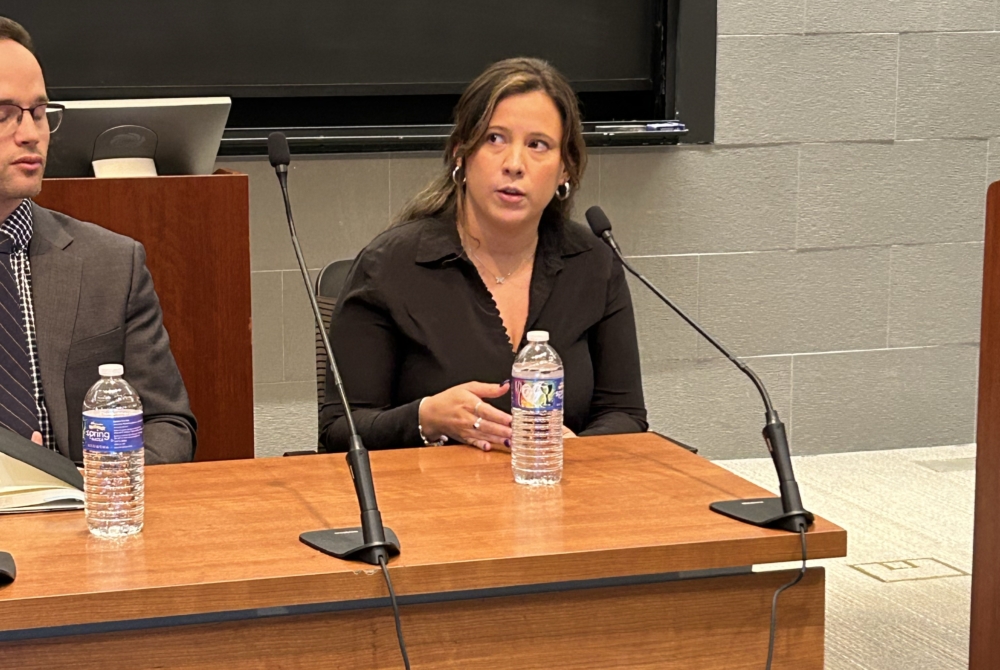
Panelist Pilar Gonzalez Navarrine ’24.
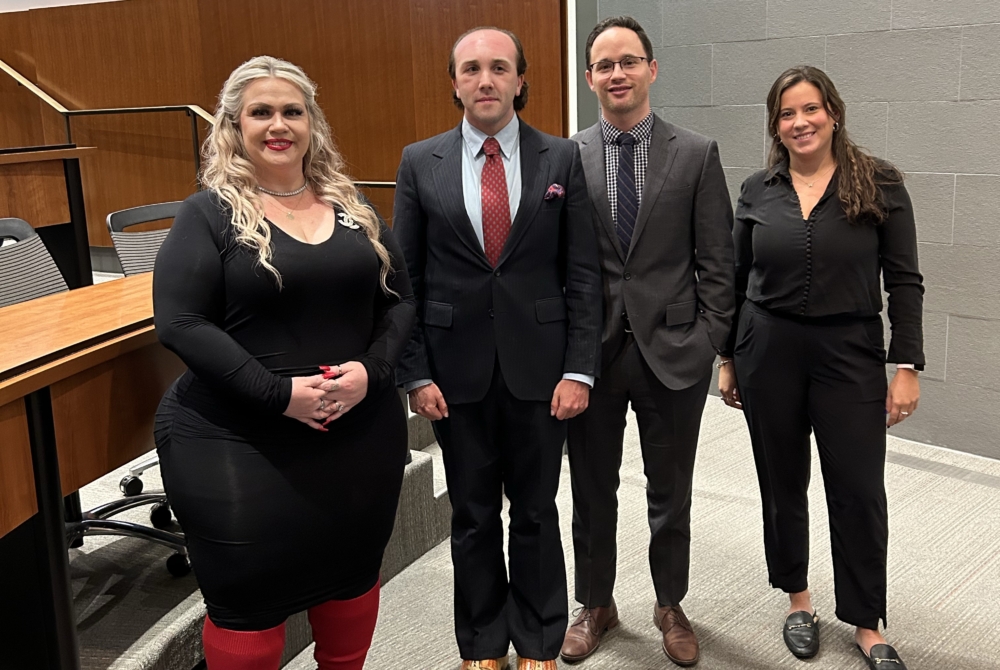
Panelists from left to right- Stephanie Schroeder, Benjamin Pomerance, Patrick George ’24, and Pilar Gonzalez Navarrine ’24.
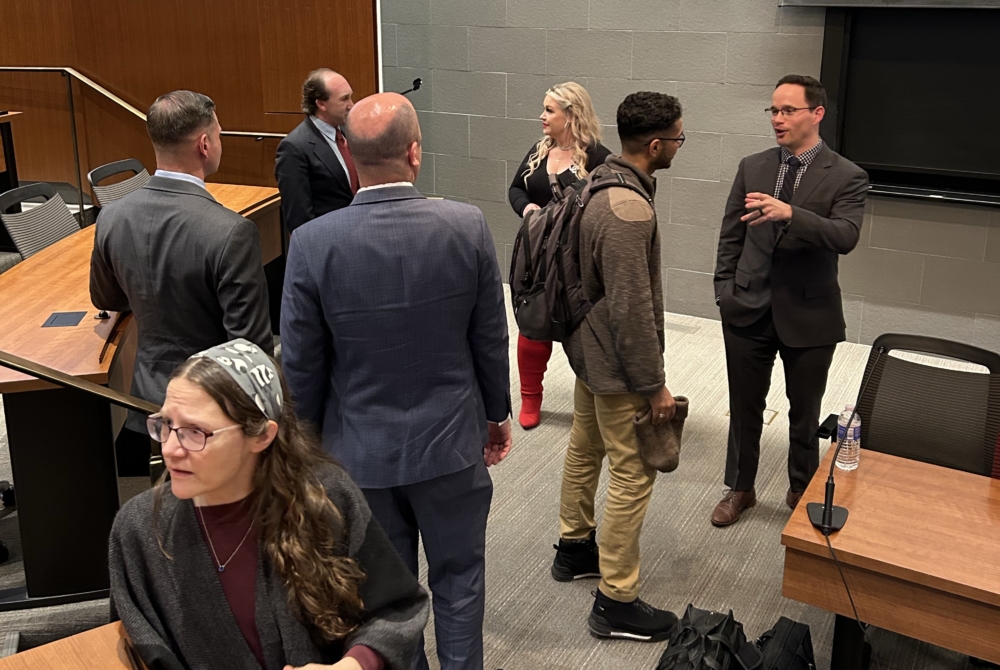
Panelists chatting with attendees after the event.